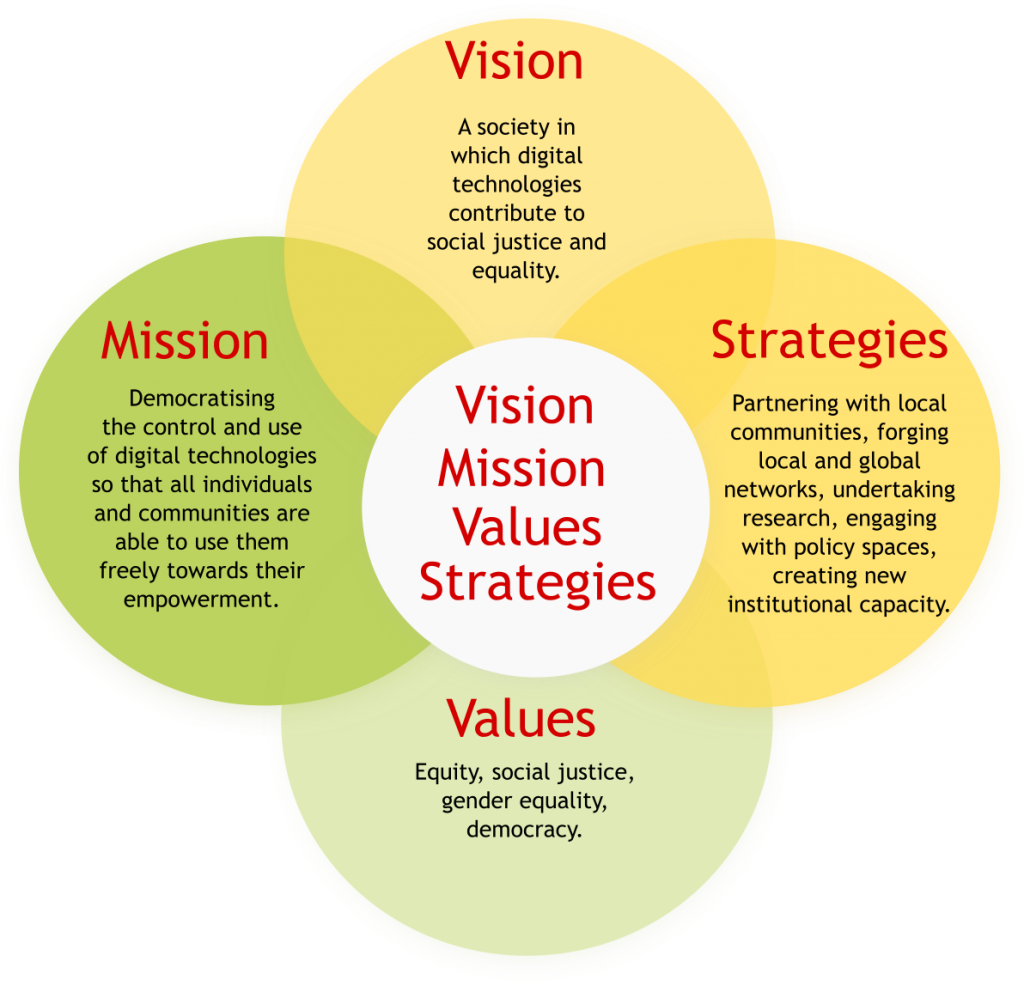IT for Change, an NGO located in Bengaluru, India, promotes innovative and effective use of Information and Communication Technologies (ICTs) for socio-economic change in the global south. Dominant approaches in relation to digital technologies are steeped in ideologies of market fundamentalism, and have displaced the cornerstone ethics of participation, social justice and gender equality.
At IT for Change, we believe that progressive development sector actors must come together to influence the techno-social structures are redefining our societies. We seek to build bridges across different sectors to strive towards an equitable information society. Our work in the areas of education, gender, digital rights and democracy, and data and digital economy push the boundaries of existing vocabulary and practice and explore new development frameworks.
IT for Change is in Special Consultative Status with the Economic and Social Council of the United Nations.

Thematic Areas
Our policy research and advocacy efforts in relation to the digital economy have focused on identifying appropriate directions for the governance of platforms, data and AI technologies, from the standpoint of equity and social justice. In global and national policy dialogues, we have consistently articulated the rights of marginalized people and groups in the rapidly platformizing and datafying economy, underscoring the linkages between data justice and the right to development. Read more.
Exploring the intersections of digital rights debates with democratic politics, especially in post-colonial societies in the global South, has been a constant focus of our research, advocacy and field-building efforts. In times of data governmentality and the automated public sphere, building an inclusive democracy which furthers citizen voice and meaningful participation for those at the margins, is what we strive towards. Read more.
Prakriye, our field resource centre, deploys the creative potential of information and communication technologies in furthering socio-political empowerment of marginalized rural women and adolescent girls, and promoting gender-responsive local governance. In its efforts to evolve a radically new development praxis that brings power to the peripheries, the centre engages with rural women’s collectives, adolescent girls, male community leaders, local government institutions and community based organizations in over 60 villages of Mysuru district, India. Read more.
The focus of IT for Change’s work in education continues to be on demonstrating and maturing models of technology integration that strengthen teacher agency and school autonomy in public education systems. In 2019-20, we continued to work on making classroom processes more democratic and participatory, towards building teacher networks and collaborative resource repositories. We also made efforts through our work to inform education policy and discourse. Read more.
The feminist project of expanding women’s autonomy and overturning entrenched power hierarchies demands new strategies in these datafied times. Digital technologies have completely restructured society and its institutions. As data becomes the key artifact of power and control, feminism needs to stay ahead in its theory and practice. Our research, advocacy and networking efforts at global and national levels are directed towards this imperative, in order to promote gender justice in the digital society. Read more.
